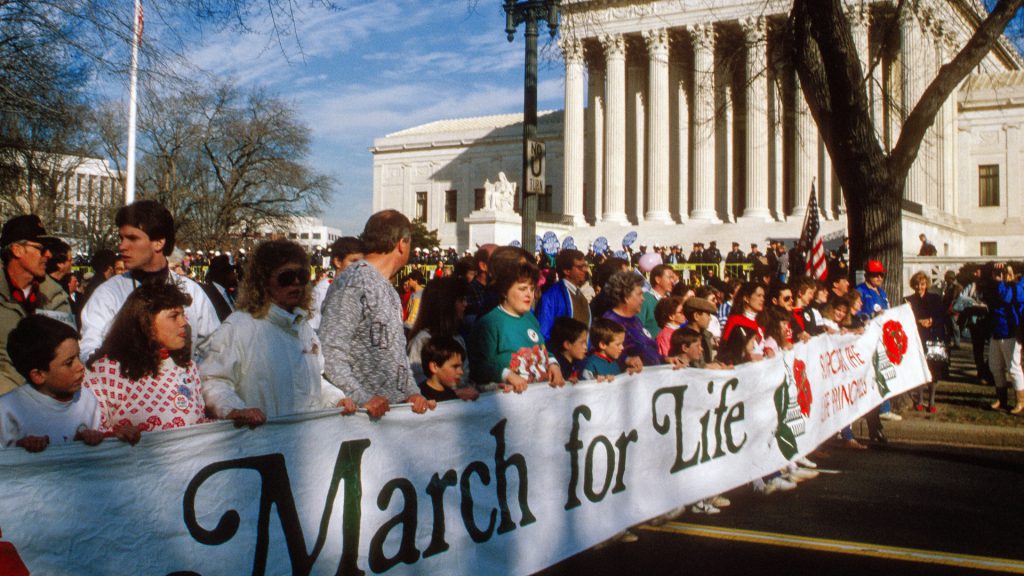
Published August 3, 2021
Last month, Mississippi presented a brief to the Supreme Court arguing that our national charter, the Constitution of the United States, does not confer a right to abortion. This is irrefutably true. No such right can be found in the text of the Constitution, or in its structure, logic or original understanding. Mississippi then took the next step: asking the court to finally admit that cases claiming that there is such a right – Roe v. Wade and Planned Parenthood v. Casey – had been wrongly decided and need to be overruled.
In what will prove to be the most watched – and most important – Supreme Court case in nearly half a century, the court will have an opportunity to correct a grievous error, one that has not only lent legal, indeed constitutional, cover to the elective killing of unborn children literally by the millions, but has also deeply corrupted American constitutional jurisprudence. If the justices – particularly those nominated as originalists and constitutionalists – fail to correct that error, they will undermine their own and the court’s credibility and precipitate a social revolt from conservative and Republican voters — voters who worked so hard to produce the current composition of the court.
The nonexisting ‘right’ to abortion
Mississippi’s argument is straightforward: Roe and Casey confected a “constitutional right” to abortion out of thin air. The majorities in those cases did not actually find such a right; they simply imposed their own moral-political opinions about the desirability of legal abortion.
Neither the so-called right to privacy appealed to by the Roe court, nor the “liberty” right to “personal decisions” that the Casey court conjured up, was agreed to, in practice or in principle, by the framers and ratifiers of the due process clause of the 14th Amendment, where the justices in Roe and Casey claimed to find them, or in any other provision of the Constitution.
Even some notable legal scholars who favor legal elective abortion as a policy have been willing to acknowledge this. Writing in the Yale Law Journal in 1973, the year Roe was decided, John Hart Ely of Harvard Law School (later dean of Stanford Law School) derided the decision as “bad because it is bad constitutional law, or rather because it is not constitutional law and gives almost no sense of an obligation to try to be.”
And he is not alone. Writing in the Harvard Law Review in 1973, Laurence Tribe explained that “one of the most curious things about Roe is that, behind its own verbal smokescreen, the substantive judgment on which it rests is nowhere to be found.”
Meanwhile, Edward Lazarus, a former clerk to Harry Blackmun, the justice who authored Roe, explained that “as a matter of constitutional interpretation and judicial method, Roe borders on the indefensible.” And it’s worth noting that Lazarus describes himself as “utterly committed to the right to choose.”
Because Roe is not constitutional law at all, the past 48 years of Supreme Court jurisprudence have proved utterly unworkable to lower courts trying to adjudicate various state protections for unborn life, the safety of women and the integrity of medicine – the three main areas of concern that Mississippi cites in defense of its law (which prohibits elective abortion after 15 weeks). As its brief points out, “Because the Constitution does not protect a right to abortion, it provides no guidance to courts on how to account for the interests in this context.”
Given that neither Roe nor Casey can be taken seriously as constitutional judicial review but are simply, as Kennedy appointee Justice Byron White put it, “raw judicial power” in making social policy, Mississippi makes clear in its brief that the varied social arguments the court has advanced do not hold water.
Justice Blackmun, writing for the majority in Roe, claimed that there was some great scientific (and metaphysical and theological) mystery about when the life of a new human being comes into existence. This was false even in 1973. Science had by then long established that a new living member of the species Homo sapiens begins from the very earliest embryonic stage (long before a woman would even know of a pregnancy).
Moreover, Mississippi points out that “scientific advances show that an unborn child has taken on the human form and features months before viability.”
That’s true. One of us recently saw the 12-week ultrasound of his unborn child – with vivid clarity of the distinctively human form. It is unseemly for grownups, especially those exercising public authority as judges, to pretend to be ignorant of these basic realities.
Women don’t need abortion to be free
The Casey court held that American women had become so reliant on abortion that even though Roe may have been wrongly decided, the court had to uphold “abortion rights” in order to protect women’s liberty in modern society. Not only is that absurd but it does a disservice to women to suppose that their social equality must be purchased at the price of the lives of their children and the corruption of constitutional law.
As Mississippi points out, “Innumerable women and mothers have reached the highest echelons of economic and social life independent of the right endorsed in those cases. Sweeping policy advances now promote women’s full pursuit of both career and family.”
Given that there is no constitutional or social defense of Roe or Casey, that leaves the court with only one path forward: Correct its mistake. The best originalist reading of the 14th Amendment, we are convinced, would include unborn persons within the scope of the provision stating that no state may “deny to any person within its jurisdiction the equal protection of the laws.”
Historic scholarship by professors Charles Rice and Michael Stokes Paulsen, along with more recent research by John Finnis and Josh Craddock – including a forthcoming amicus brief one of us has co-authored with Finnis – demonstrates that it was well-established that the unborn were considered legal persons at the time of the ratification of the 14th Amendment.
While the current court may not be willing to go so far as to invalidate all legislation protecting abortionists, at the very least it must correct its own prior mistake of barring states from enacting legislation protecting unborn persons. Failure to do so will be, and will certainly be regarded as, a gross betrayal of the trust of those who worked to build a court whose members would be faithful constitutionalists. Worse than that, it would be a betrayal of persons in the womb.
Ryan T. Anderson, president of the Ethics and Public Policy Center, is the author of “When Harry Became Sally: Responding to the Transgender Moment.“
Robert P. George is the McCormick Professor of Jurisprudence and director of the James Madison Program in American Ideals and Institutions at Princeton University.
Ryan T. Anderson, Ph.D., is the President of the Ethics and Public Policy Center.






